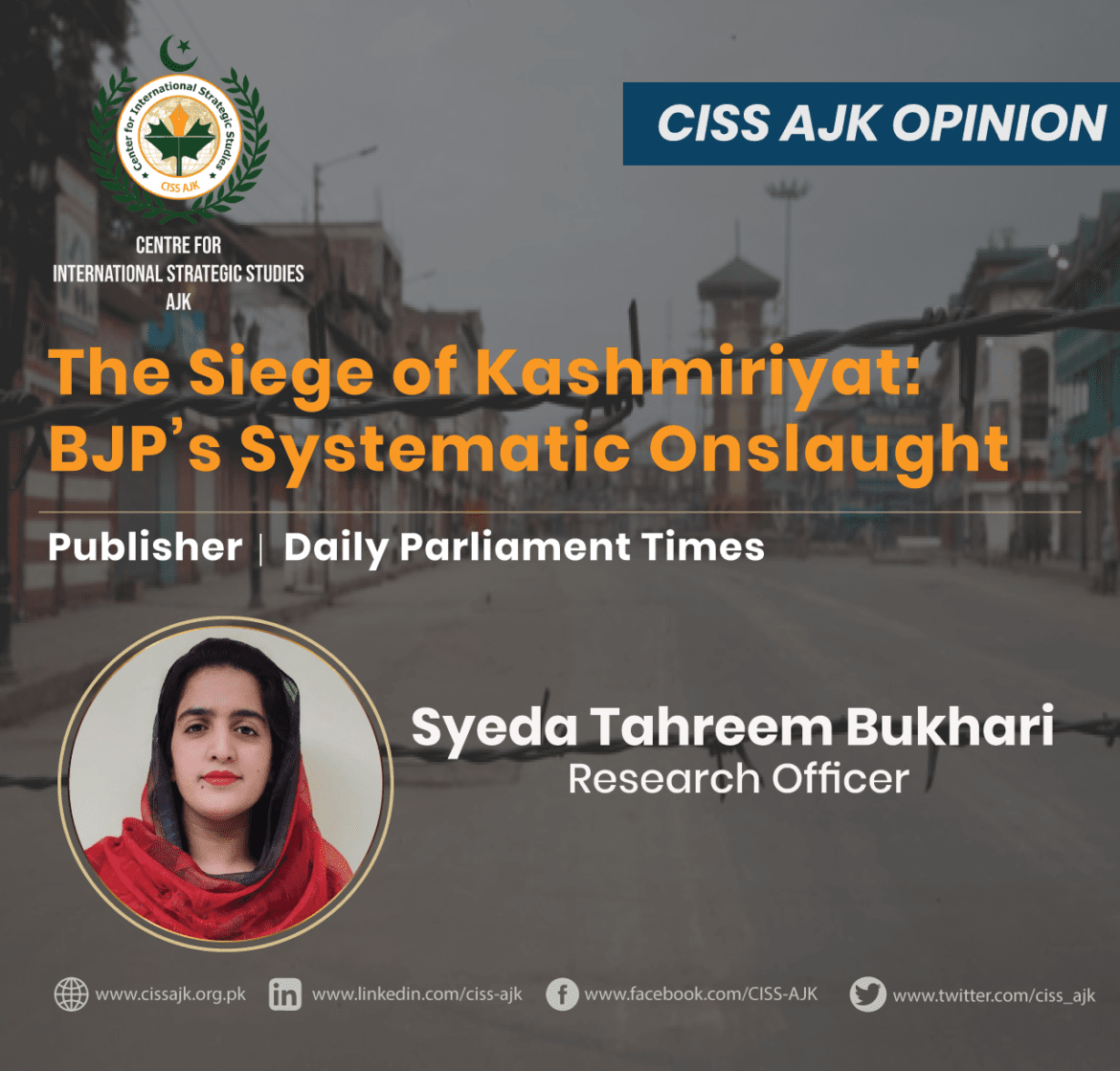It has been four years since Kashmiris were stripped off their identity by revocation of Article 370.India attempted to legalize its occupation of Indian Illegally Occupied Jammu and Kashmir. The unilateral action of India in IIOJK is against the spirit of international law and bilateralism which India claimed Kashmir to be a bilateral issue. It was not only the most radical political decision in the 76-years history of the Kashmir dispute but also came at an unprecedented humanitarian cost to the Kashmiri people. The mantra of the BJP government behind the abrogation of the Article was to integrate Kashmir and put it on the same footing as the rest of India. India modified the articles withthe justification that they had hampered the state’s integration with India. Moreover, India claimed that the revocation of Article 370 is for peace and development in Jammu and Kashmir. Contrary to this, the ground situation shows another face of India; even four years later after the revocation of Article 370 people in Kashmir are the victim of gross violation of human rights in the hands of Indian-occupied forces. Kashmir is still the most militarized region with 0.8 Million Indian Army and paramilitary forces stationed there. Ten thousand women have gone missing in Kashmir since 2019. Five hundred thousand people have lost their jobs after the revocation of Article 370. Torture and arbitrary detentions, extra-judicial killings, mass imprisonment, and restrictions on the press and freedom of speech are rampant in IIOJK. Even the United Nations special rapporteur on minority issues raised concerns over the gross violation of human rights in Kashmir. The BJP government is implementing Israeli tactics to silence the voices of the Kashmiri people.India is working to erase the Kashmiri people’s identity through skewed policies, draconian laws, and regulations. Indian intentions to dilute the identity of Kashmiris are evident in the new domicile law “The domicile laws in Indian occupied Kashmir have been amended, and a penalty of Rs 50,000 has been imposed on designated officials who fail to issue domicile certificates within seven days of resolving disputes”. The penalty will be deducted from the salary of the issuing officer. The new law makes it easier for non-Kashmiris to obtain permanent residency and jobs in the region. The changes in domicile laws have raised concerns among Kashmiris about losing their land, culture, and demographic identity.Moreover, the new law has been viewed as part of India’s settler-colonial agenda and has raised questions about the impact on Kashmir’s identity, culture, and demographic composition. The new domicile law has received severe criticism reactions from Kashmir’s political partiesthat Modi administration has enacted. The new domicile regulations, intention to settle Hindu Pundits, other non-Kashmiri, the soldier’s colonies, and allotting thousands of acres of land to Indian military and paramilitary forces are all parts of a larger chain in which India is depriving the Kashmiri people of their Kashmiri identity the “Kashmiriat.” India is attempting to strip Kashmir of its natural resources. Illegal acquisition of land by Indian military and paramilitary forces remained another dominant rights violation issue in IOJK. In January 2022, thousands of acers of land in Gulmarg and Sonamarg area of Occupied Kashmir were declared as ‘strategic areas’ and given to Indian military. This is a brazen violation of International Law governing the disputed nature of Occupied Jammu and Kashmir. It has been 76 years since India is unable to suppress the voice of Kashmiris who are struggling for their freedom. Insaniyat, Jamhoriyat, and Kashmiriyat as proposed by Atal Bihari Vajpayee, must be exhibited towards Kashmiris by India. Their aspirations should be addressed by implementing United Nations Security Council resolution on Kashmir. The radical policies of the Indian government have already created unrest in India itself where Manipur is burning. Peace is unattainable under the BJP rule wherehate-mongering speeches and open call for violence against minorities, providing impunity to the perpetrators is common practice. It has descended India into darkness. Author is a Research Officer at the Centre for International Strategic Studies-AJK.
The Siege of Kashmiriyat: BJP’s Systematic Onslaught
716



